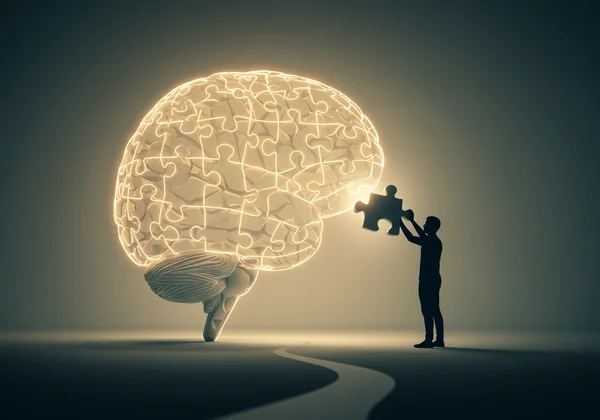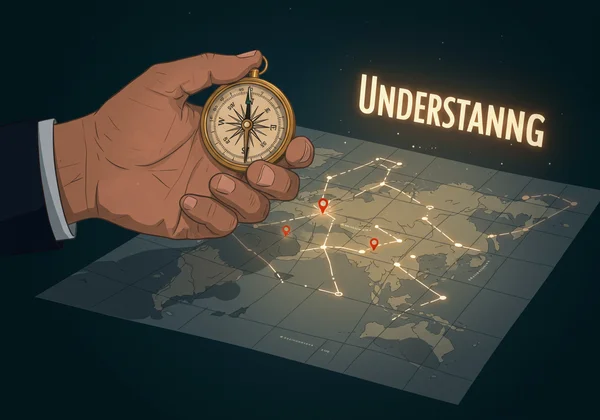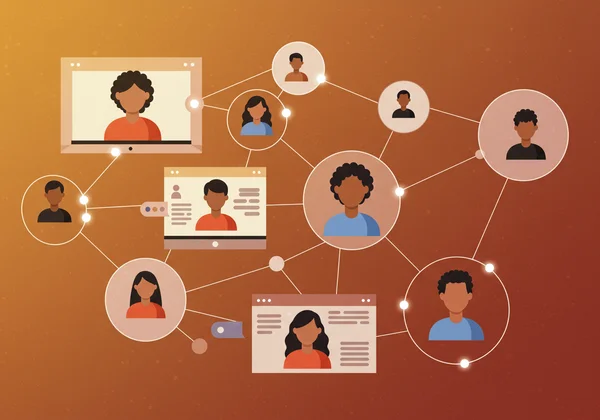High Aspie Quiz Score? Here Are Your 7 Next Steps
August 17, 2025 | By Leo Sinclair
Receiving a high aspie quiz score can be a pivotal and emotional moment. You might feel a wave of relief, a tinge of anxiety, or profound confusion. Whatever you're feeling, take a deep breath. This result isn't a final label; it's a signpost pointing you toward a new chapter of self-discovery. If you're asking, “what do my aspie quiz scores mean?”, you've found the right place. This guide offers a clear, 7-step action plan to help you navigate your results with confidence.
Your journey of self-exploration starts now. Ready to make sense of it all? Let's begin.

Step 1: Acknowledge Your Feelings
There is no "right" way to feel after seeing your score. For many, a high result on an online asperger's test brings overwhelming relief—a lifetime of feeling "different" suddenly has a potential name. This validation can feel like finding a missing piece of a puzzle you didn't know you were solving.
Conversely, you might feel anxious or overwhelmed. This is also completely normal. The idea of being neurodivergent can feel like a significant identity shift. Allow yourself to sit with these emotions without judgment. Acknowledge them, name them, and understand that your feelings are a valid part of exploring your unique neurodivergent experiences.
Step 2: Remember the Quiz Is a Tool, Not a Diagnosis
This is the single most important thing to remember. The Aspie Quiz is a science-informed, preliminary self-screening tool designed to highlight traits associated with the autism spectrum. It is an excellent starting point for self-reflection. However, it is not, and never can be, a substitute for a professional medical diagnosis from a qualified healthcare provider.
Think of it as a compass, not a destination. It gives you a direction for your exploration. The results from our free aspie quiz offer valuable insights and can empower you with a new lens through which to view your life experiences, but they do not provide a clinical label.

Step 3: Deepen Your Understanding Through Research
Your quiz score is an invitation to learn more. Dive into the world of neurodiversity and the autism spectrum. Look up key concepts and autism spectrum traits that might resonate with you. Some common areas to explore include:
- Sensory Sensitivities: Do certain lights, sounds, textures, or smells overwhelm you?
- Special Interests (or "SpIns"): Do you have passions or hobbies that you dive into with an intense focus and joy?
- Social Differences: Do you find small talk exhausting or navigate social situations differently than your peers?
- Stimming: Do you engage in repetitive movements or sounds to self-soothe or express emotion?
Understanding these concepts can transform your perspective from "What's wrong with me?" to "This is how my brain is wired." It's an empowering shift that builds self-acceptance.
Step 4: Get a Personalized AI Report for Deeper Insight
A numerical score only tells part of the story. To truly understand what your results mean for you, consider leveraging the optional, personalized AI autism report available on our site. While a standard score gives you a general idea, our AI-driven analysis provides a comprehensive breakdown tailored to your specific answers.
This report can offer deeper insights into your potential strengths, challenges, and how these traits might manifest in your daily life—from work to relationships. It translates the abstract numbers into a practical, personal narrative. For a more complete picture, you can get your AI report.
Step 5: Consider Seeking a Professional Evaluation
For some, self-understanding and community connection are enough. For others, the journey leads toward seeking an official autism diagnosis. This is a deeply personal decision with no right or wrong answer.
Reasons to Pursue a Diagnosis vs. Self-Identification
The neurodivergent community widely accepts self-identification. Your lived experiences are valid, and you don't need a formal piece of paper to understand yourself or find community. However, there are practical reasons many choose to seek a formal diagnosis after an asperger's self-assessment:
- Workplace or Academic Accommodations: A diagnosis is often necessary to receive legal protections and support (e.g., extended time on exams, a quieter workspace).
- Access to Therapy and Support Services: Some specialized therapies or government support programs require a formal diagnosis.
- Personal Validation: For some, having a clinician confirm their experiences is profoundly validating and provides closure.
- Clarity for Family: A diagnosis can help family members understand your needs and provide better support.
Weighing these factors against the potential costs and emotional energy of an assessment will help you decide the right path for you.
How to Find Qualified Healthcare Professionals
Finding the right professional is key. Look for a clinical psychologist, psychiatrist, or neuropsychologist who specializes in adult autism assessments. Many clinicians focus on children, so be sure to confirm their experience with adults.
Good places to start your search include national psychological associations, autism advocacy organizations, or a referral from your primary care doctor. Online neurodivergent communities can also be a source of recommendations for affirming and knowledgeable providers in your area.

Preparing for Your Appointment: What to Bring and Expect
Going into an assessment prepared can ease anxiety. Bring a copy of your Aspie Quiz results and your personalized AI report if you have one. It’s also helpful to write down a list of specific life examples that align with autistic traits.
Think about your childhood, social challenges, sensory issues, and deep interests. The more information you can provide, the more accurate the evaluation will be. An assessment often involves detailed interviews, questionnaires, and sometimes observational tasks. It is a comprehensive process designed to get a full picture of who you are.
Step 6: Find Your Community and Connect with Others
You are not alone. One of the most powerful steps you can take is to connect with other neurodivergent and autistic individuals. Online communities on platforms like Reddit (e.g., r/autism, r/aspergers, r/AutismInWomen) and dedicated forums like Wrong Planet are incredible resources.
Hearing about the lived experiences of others can be incredibly affirming. You'll find people who share your perspective, understand your challenges without judgment, and celebrate your unique strengths. This sense of belonging is a cornerstone of embracing your neurodivergent identity.

Step 7: Decide How to Communicate Your Journey
Deciding if, when, and how to talk about your self-discovery with others is a personal choice. You don't owe anyone an explanation. If you do choose to share, consider starting with someone you trust completely.
You can frame it as a journey of self-understanding. Explain that you've discovered new things about how your brain works and that it helps you understand yourself better. Use resources from your research to help them understand. Be patient; it may take time for them to process this new information, just as it did for you. These are your neurodivergent next steps, and you get to take them at your own pace. To begin, you can explore our resources.
Your Journey of Self-Discovery Has Just Begun
Receiving a high score on the Aspie Quiz is not an end point; it's the opening of a door. You've taken a courageous step toward understanding the intricate, wonderful wiring of your mind. This 7-step guide is here to support you as you walk through that door into a world of greater self-awareness and acceptance.
Remember to be kind to yourself, continue learning, and connect with others who share your path. Your journey is unique, and it is valid. To continue your exploration or retake the test for new insights, visit the Aspie Quiz homepage today.
Frequently Asked Questions After the Aspie Quiz
Is the Aspie Quiz an official diagnosis?
No, absolutely not. The Aspie Quiz is a preliminary screening tool designed for self-exploration. It can provide valuable insights into your traits but cannot replace a comprehensive evaluation and diagnosis from a qualified healthcare professional. It is a starting point, not a conclusion.
What do my Aspie Quiz scores mean?
Your results provide two key scores: an Aspie (neurodivergent) score and a neurotypical score. A high Aspie score combined with a low neurotypical score suggests you share a significant number of traits commonly associated with autism. For a deeper dive, the aspie quiz results explained on our results page offer an overview, while the optional AI report provides a personalized analysis of how these specific traits may apply to you.
Is Asperger's still a diagnosis?
No. In 2013, the Diagnostic and Statistical Manual of Mental Disorders (DSM-5) updated its criteria. Asperger's Syndrome was folded into a single umbrella diagnosis: Autism Spectrum Disorder (ASD). While the term "Asperger's" or "Aspie" is no longer used clinically, many people diagnosed before 2013 or who strongly identify with the specific trait profile still use it as a part of their identity.
How accurate is the Aspie Quiz for adults?
The Aspie Quiz is a well-regarded instrument used by many adults as a first step in exploring their neurotype. Its accuracy in reflecting your traits depends on your honest self-reflection while answering the questions. It is designed to be a reliable indicator for self-assessment, helping you decide if further exploration or a professional consultation is a good next step. You can always take the test again to see if your reflections change over time.